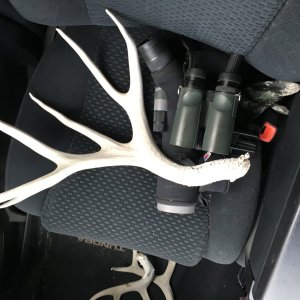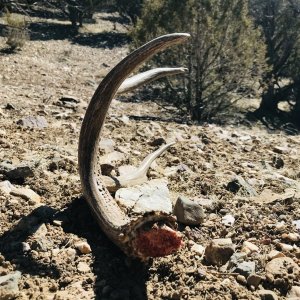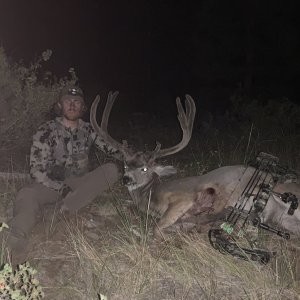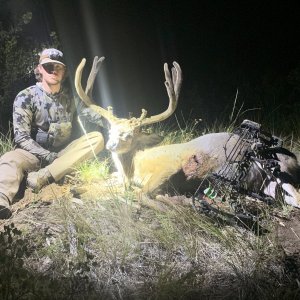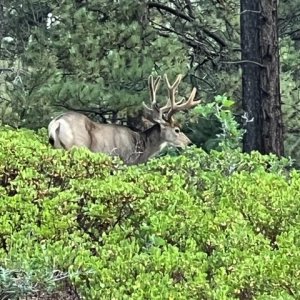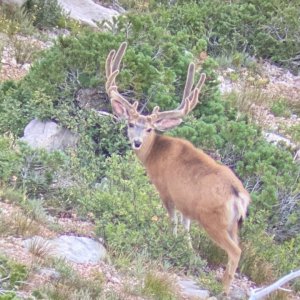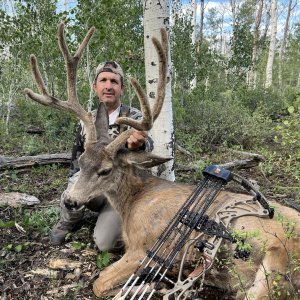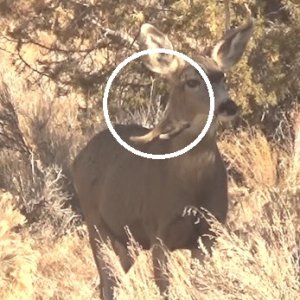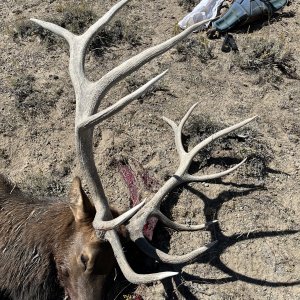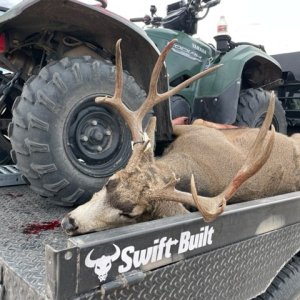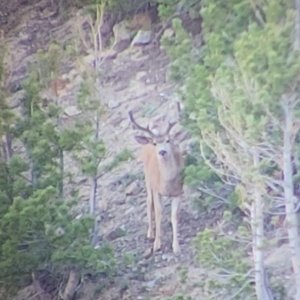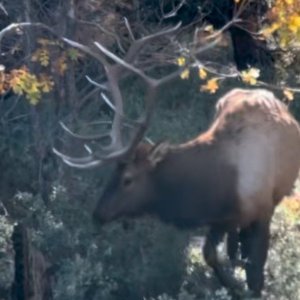BigFin
Active Member
- Messages
- 693
Interested to hear opinions of guys on this site.
You couldn't pay me enough to be a rancher. Have many friends and clients who are ranchers and admire them, but sometimes I question the policies in effect to benefit their industry.
Seems difficult to demand that elk and bison get reduced to accomodate a disease that was originally introduced by cattle.
Even more difficult to understand this proposal when many of the cattle are grazing on public lands at a fraction of the cost of private pasture, yet the elk and bison are supposed to be limited or removed.
Hmmmm? I thought wolves had already reduced or eliminated elk and bison enough.
>>>>>>>>>>>>>>>>><<<<<<<<<<<<<<<<<<<<
Cattle group's brucellosis proposal draws fire
By MATTHEW BROWN
Associated Press
A cattle producers' group on Monday called for federal agencies to reduce bison and elk numbers around Yellowstone National Park as part of efforts to eradicate the livestock disease brucellosis.
A Yellowstone official rejected the proposal. And a spokeswoman for Wyoming Gov. David Freudenthal suggested the proposal would invite federal meddling in an issue best addressed at the state level.
Brucellosis still lingers in Yellowstone's wildlife after being nearly eliminated elsewhere in the country over the past several decades.
The disease causes pregnant cows to abort their calves. It originally was introduced to Yellowstone through livestock brought in by early European settlers. How to clean up tainted elk and bison populations has so far eluded state and federal officials - raising complaints from ranchers who say they must pay the price for the failure to control the disease.
That was underscored by two recent infections in Daniel, Wyo., and Pray, Mont., both of which are in the Yellowstone area.
Both ranches face the likelihood their herds will be slaughtered as a protective measure. And hundreds of cattle on neighboring ranches remain under quarantine while investigators look for the sources of the infections.
To guard against future transmissions, the California-based U.S. Cattlemen's Association said Monday that the federal government should reduce Yellowstone's elk and bison populations to keep the animals separated from domestic livestock.
"The federal government needs to look at what numbers of animals they could sustain there in the park without them leaving and mingling with livestock," said the group's president, Jon Wooster. "They need a plan to get those numbers in line with forage (in the park) and keep the disease from spreading any farther than it already has."
Yellowstone spokesman Al Nash dismissed Wooster's assertion that bison and elk overgraze inside the park. He said the animals' winter migrations to lower elevations, where they are more likely to meet with cattle, are part of their natural patterns.
"There is no population issue inside Yellowstone National Park. These animals do not leave the park because it is overgrazed," Nash said.
In Wyoming, Freudenthal spokeswoman Cara Eastwood said managing elk and bison is the responsibility of the state - not the federal agencies mentioned by the cattlemen's association.
"This is an issue that is best managed locally by ranchers and officials on the ground, rather than from 2,000 miles away in Washington, D.C.," Eastwood said.
Yellowstone's bison already are aggressively managed. Hunting and a federal-state capture and slaughter program killed 1,600 of the animals last winter. About 2,100 of the animals remain.
But Dennis MacDonald, past president of the cattlemen's Montana branch, said the bison program has not reduced the threat from elk.
He said reducing elk numbers through expanded public hunting would give his industry room to operate - until a brucellosis vaccine can be developed to eradicate the disease from wildlife.
"It's a much more difficult problem to solve," MacDonald said of brucellosis in elk. "I love to see the elk. They are one of the most magnificent animals in the world, but we need to get a handle on this disease."
"Hunt when you can - You're gonna' run out of health before you run out of money!"
You couldn't pay me enough to be a rancher. Have many friends and clients who are ranchers and admire them, but sometimes I question the policies in effect to benefit their industry.
Seems difficult to demand that elk and bison get reduced to accomodate a disease that was originally introduced by cattle.
Even more difficult to understand this proposal when many of the cattle are grazing on public lands at a fraction of the cost of private pasture, yet the elk and bison are supposed to be limited or removed.
Hmmmm? I thought wolves had already reduced or eliminated elk and bison enough.
>>>>>>>>>>>>>>>>><<<<<<<<<<<<<<<<<<<<
Cattle group's brucellosis proposal draws fire
By MATTHEW BROWN
Associated Press
A cattle producers' group on Monday called for federal agencies to reduce bison and elk numbers around Yellowstone National Park as part of efforts to eradicate the livestock disease brucellosis.
A Yellowstone official rejected the proposal. And a spokeswoman for Wyoming Gov. David Freudenthal suggested the proposal would invite federal meddling in an issue best addressed at the state level.
Brucellosis still lingers in Yellowstone's wildlife after being nearly eliminated elsewhere in the country over the past several decades.
The disease causes pregnant cows to abort their calves. It originally was introduced to Yellowstone through livestock brought in by early European settlers. How to clean up tainted elk and bison populations has so far eluded state and federal officials - raising complaints from ranchers who say they must pay the price for the failure to control the disease.
That was underscored by two recent infections in Daniel, Wyo., and Pray, Mont., both of which are in the Yellowstone area.
Both ranches face the likelihood their herds will be slaughtered as a protective measure. And hundreds of cattle on neighboring ranches remain under quarantine while investigators look for the sources of the infections.
To guard against future transmissions, the California-based U.S. Cattlemen's Association said Monday that the federal government should reduce Yellowstone's elk and bison populations to keep the animals separated from domestic livestock.
"The federal government needs to look at what numbers of animals they could sustain there in the park without them leaving and mingling with livestock," said the group's president, Jon Wooster. "They need a plan to get those numbers in line with forage (in the park) and keep the disease from spreading any farther than it already has."
Yellowstone spokesman Al Nash dismissed Wooster's assertion that bison and elk overgraze inside the park. He said the animals' winter migrations to lower elevations, where they are more likely to meet with cattle, are part of their natural patterns.
"There is no population issue inside Yellowstone National Park. These animals do not leave the park because it is overgrazed," Nash said.
In Wyoming, Freudenthal spokeswoman Cara Eastwood said managing elk and bison is the responsibility of the state - not the federal agencies mentioned by the cattlemen's association.
"This is an issue that is best managed locally by ranchers and officials on the ground, rather than from 2,000 miles away in Washington, D.C.," Eastwood said.
Yellowstone's bison already are aggressively managed. Hunting and a federal-state capture and slaughter program killed 1,600 of the animals last winter. About 2,100 of the animals remain.
But Dennis MacDonald, past president of the cattlemen's Montana branch, said the bison program has not reduced the threat from elk.
He said reducing elk numbers through expanded public hunting would give his industry room to operate - until a brucellosis vaccine can be developed to eradicate the disease from wildlife.
"It's a much more difficult problem to solve," MacDonald said of brucellosis in elk. "I love to see the elk. They are one of the most magnificent animals in the world, but we need to get a handle on this disease."
"Hunt when you can - You're gonna' run out of health before you run out of money!"

